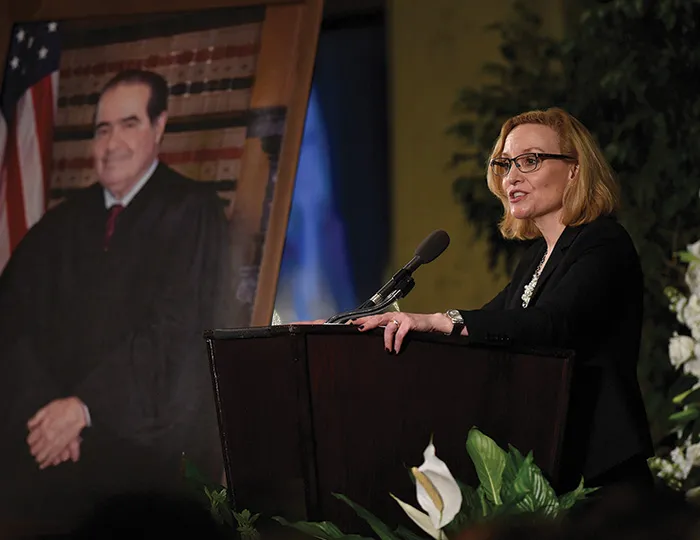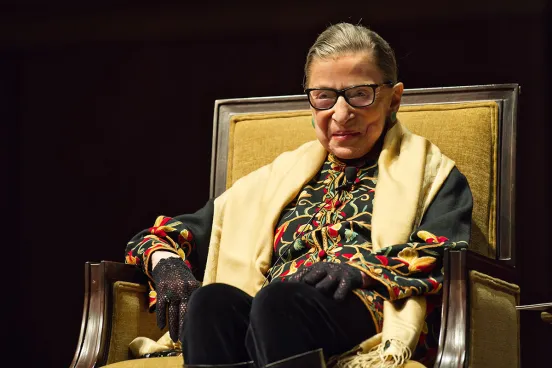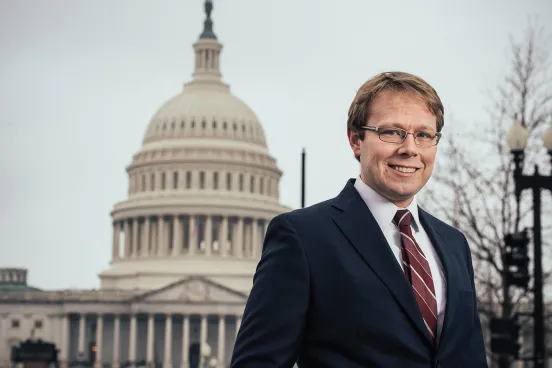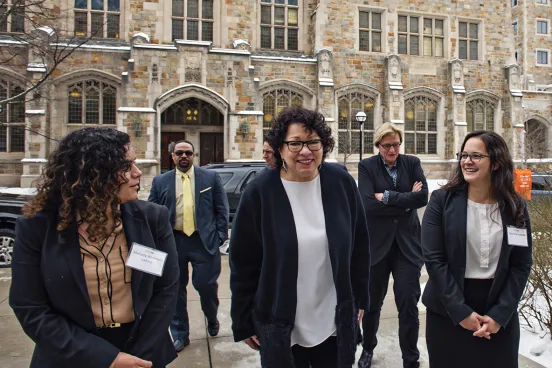
Supreme Court Associate Justice Antonin Scalia “truly valued our input. He had no use for sycophants. He wanted to get things right; and, therefore, he valued clerks who would argue with him about why his initial thinking might be wrong,” Joan Larsen wrote in The New York Times about her former boss after his passing in February.
“If you could prove your case, you could win him over,” wrote Larsen, a longtime faculty member who last year was appointed a justice of the Michigan Supreme Court and remains an adjunct professor at Michigan Law. “But it could not be done with appeals to emotion, or outcome, or legacy, or anything else. The only way to convince him was to show him that the law was on the other side (usually by peeking nervously over his shoulder as he read, and questioned, and then reread the cases). My proudest moment as his clerk was convincing him, with two sleepless nights of research into dusty old precedents, that a criminal defendant should win a case that none of the justices originally thought he should win. I’m pretty sure that was the moment he was most proud of me, too.”
Larsen, who clerked for Justice Scalia in 1994–1995, was one of the Michigan Law faculty members who spoke or wrote about the justice’s legacy in the days following his unexpected death.
“The justice had an insatiable appetite for argument and discussion, he always engaged my points head-on, and he consistently made me feel like he valued my opinion— though I succeeded in changing his mind about something of even mild consequence only once, so far as I know,” said Professor Gil Seinfeld, who clerked for the justice in 2002–2003 and was the “counterclerk”—a liberal clerk in the conservative chambers—that year.
“He was incredibly energetic and witty, and, yes, he could be combative, but even in his most combative moments—at least with me—it was obvious how much he loved and took pleasure in the exercise of working through a complex and contentious legal issue. It was a privilege to clerk for him.”
The only regret that Seinfeld voiced during a talk with Michigan Law students was that the justice did not exhibit more of the qualities that he demonstrated in private in public forums as well. “I’m here to report to all of you, especially those of you who, like me, disagree with him deeply, that he was very, very hard not to like if you knew him personally,” he said. “I think we all have something to learn from that example.”
The passing of Justice Scalia “could mark a turning point in the history of American law,” Richard Primus, the Theodore J. St. Antoine Collegiate Professor of Law, wrote in Politico.
“Few justices changed the constitutional-law conversation as much as Scalia did, and the possibility of President Barack Obama’s appointing a replacement could give the court a majority of Democratic appointees for the first time in more than 40 years, promising a big legal shift in the years to come. But even before the full impact of Scalia’s departure can be assessed, his absence is almost certain to change the outcomes of several major cases pending this year before the court, on issues ranging from election law to church and state.”
During a conversation at Michigan Law, Primus focused on how Justice Scalia brought textualism and originalism to the forefront with his adherence to the idea of the “rule of law as a law of rules.”
Primus, a constitutional law professor, explained that during Justice Scalia’s education and early career, controversial decisions such as Brown v. Board of Education, Reynolds v. Sims, Miranda v. Arizona, and Roe v. Wade drew increasing criticisms that justices were becoming policymakers and departing too much from the meaning of the Constitution. Justice Scalia championed textualism and originalism in the midst of this backlash, promoting the ideas symbiotically along with a broader national movement.
“He stood for and promoted this set of ideas of how to think about the law that were marginal before he started and are mainstream to dominant before he’s done,” Primus told the audience. “Justice Scalia had a larger impact on the way we think about the law than any other justice in my lifetime and probably longer.”







